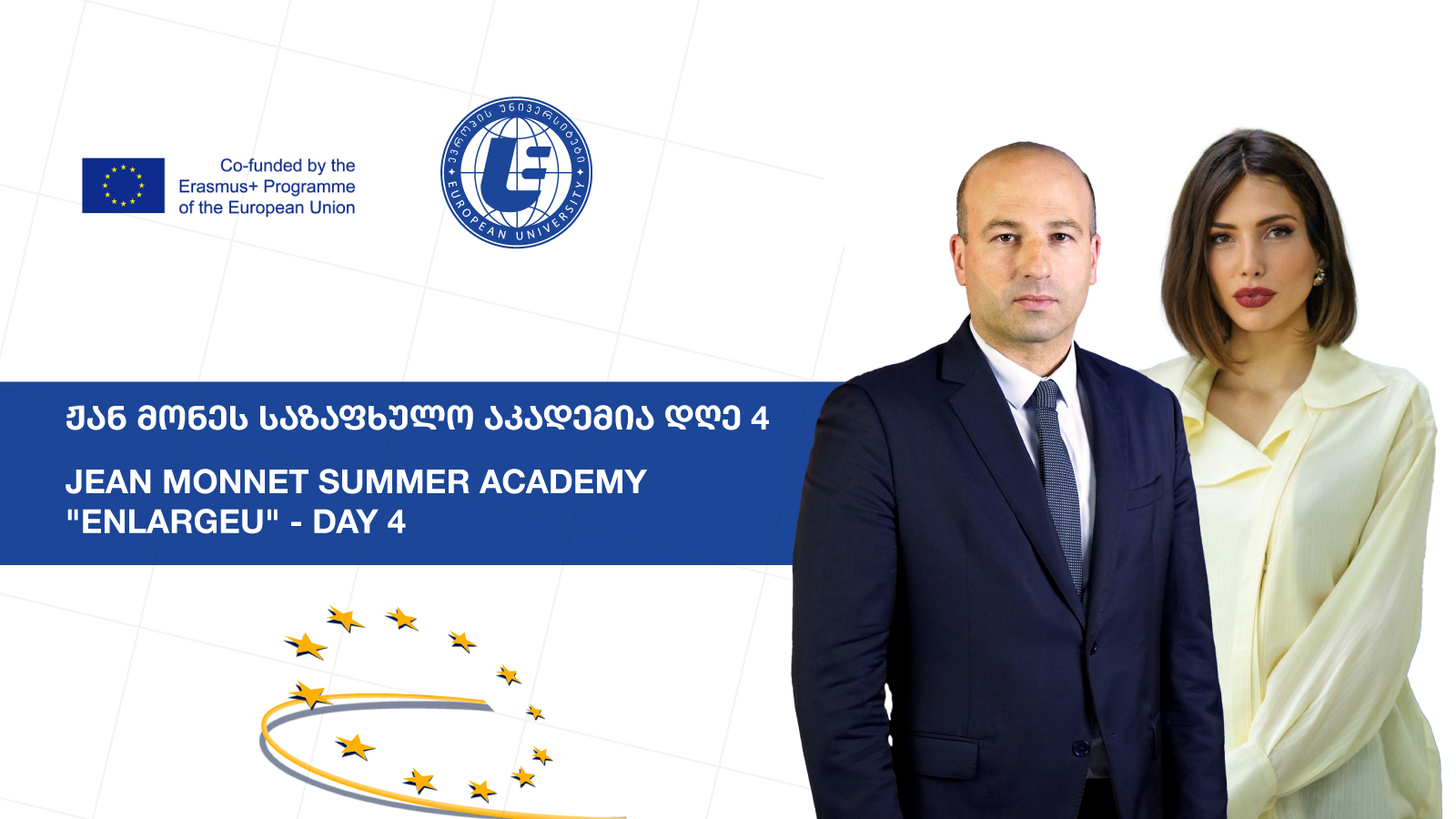4th Day Spotlight: MFA’s David Bujiashvili Discusses Georgia’s EU Accession Strategies at the Jean Monnet Academy

On the fourth day of the Jean Monnet Summer Academy “EnlargEU,” participants engaged in a series of insightful discussions led by Associate Professor Tatia Dolidze, the Jean Monnet module academic coordinator, and a special guest, David Bujiashvili, Director of the EU Assistance Coordination and Sectoral Integration Department at the Ministry of Foreign Affairs of Georgia.
Tatia Dolidze presented three lectures throughout the day. Her first lecture explained the process of accession to the European Union, covering eligibility criteria and steps toward membership. In her second lecture, she detailed empirical examples from each round of enlargement, illustrating how the accession process unfolded and its duration for various countries. Dolidze’s third lecture examined the current situation of each candidate country, highlighting their progress and outlining their accession timelines.
Special guest from the government, David Bujiashvili provided a comprehensive overview of Georgia’s evolving relationship with the European Union, tracing its development from the early 1990s to the present day. His participation was particularly valuable, offering an insider’s view of the structural mechanisms Georgia has implemented to facilitate European integration. He explained the roles of various governmental bodies in adopting the necessary legislative measures for EU membership.
The discussion also delved into Georgia’s progress in legislative and sectoral integration with the EU, focusing on the EU-Georgia Association Agreement signed in 2014. Bujiashvili emphasized the Deep and Comprehensive Free Trade Area (DCFTA) as a key element of this agreement, which has significantly aligned Georgia’s trade regulations with EU standards, leading to a 20% increase in exports due to improved product quality. He mentioned that the alignment achieved through the association agreement would facilitate a smoother and quicker negotiation process when EU accession talks begin, positively contributing to the closure of chapters.
Bujiashvili highlighted the benefits that EU membership, or even the opening of accession talks, would bring, including increased financial assistance, investments, and large-scale projects, which would contribute to a more competitive Georgian economy. When discussing the potential timeline for Georgia’s EU accession, Bujiashvili suggested that 2030 could be a realistic target, drawing on the experiences of other countries like Croatia and noting that the next wave of EU enlargement is anticipated around that time.
The Q&A session touched upon sensitive issues such as the impact of Georgia’s occupied territories on EU accession, with Bujiashvili drawing parallels with Cyprus and discussing the role that EU membership could play in facilitating the reintegration of these regions into Georgia. He also discussed Georgia’s potential in renewable energy, including wind, solar, geothermal, and hydro energy, with a strategic focus on the Black Sea electricity cable project. Additionally, Bujiashvili stressed the importance of human rights, an independent judiciary, and minority rights as essential prerequisites for advancing in the EU accession process.
The inclusion of government representatives like Bujiashvili in the Jean Monnet Summer Academy is instrumental in providing participants with a well-rounded understanding of the EU enlargement process. Their involvement ensures that discussions are grounded in both theoretical knowledge and practical, real-world experience, making the academy a more comprehensive and impactful learning experience.


